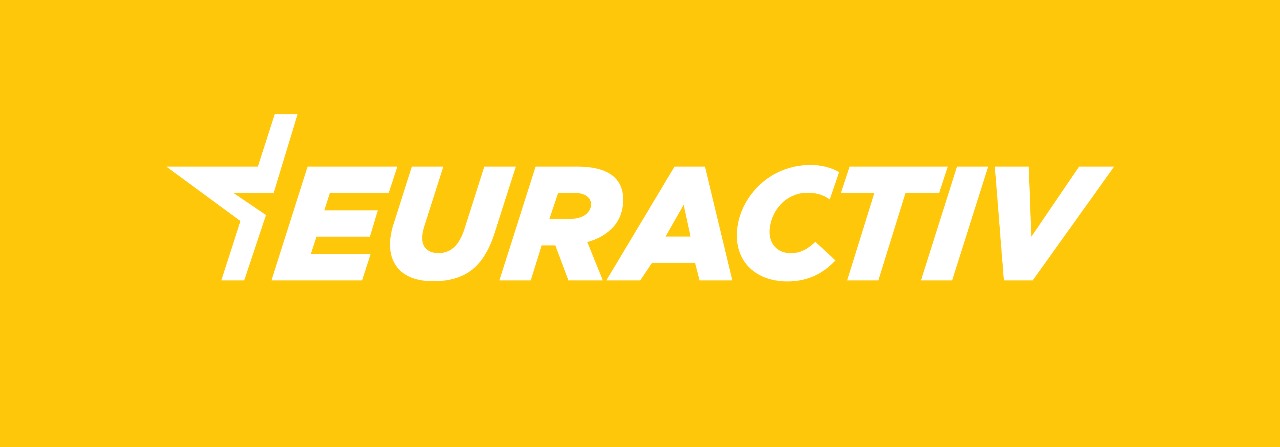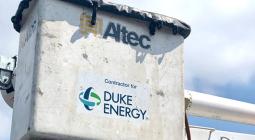France, Czechia defy EU sceptics on nuclear power
France and Czechia reiterated calls on Tuesday (9 January) for the European Commission to put nuclear power on an equal footing with renewable energies in all EU policies, putting traditional nuclear sceptic countries on the defensive.
On Tuesday (9 January), amid a major government reshuffle, French Energy Minister Agnès Pannier-Runacher was in Prague to promote nuclear collaboration.
“We will bring European energy policy to a completely new level,” declared Czechia’s Energy Minister, Jozef Síkela.
Speaking alongside his French colleague, Síkela reiterated the importance of nuclear’s role in the “decarbonisation process – not only for the Czech Republic and France but for all of Europe.”
“The key target is to reduce our dependency on fossil fuels and to decrease our CO2 emissions,” added Pannier-Runacher, who spoke in English to an international audience.
That means “developing nuclear and hydro” and “renewables with storage” to provide electricity at any time, explained the French minister.
Síkela, meanwhile, insisted on improving access to finance for nuclear projects, which have frequently gone over budget and deadline in the past years, spooking off private investors.
“Such financing should encompass new projects, long term operation of existing units and the development of human resources, skills and research and development in order to decrease the cost of electricity from nuclear projects,” the Czech minister said.
New ambitions for 2024
The joint press conference came after a year marked by the launch of a new French-led “Nuclear Alliance” bringing together a dozen EU countries to defend the merits of low-carbon atomic energy in Europe.
Since February 2023, the alliance has pushed for recognition of nuclear power among the EU’s “strategic” net-zero technologies and persuaded the European Commission to launch an industry alliance on small nuclear reactors.
But arguably their biggest victory was the recognition of low-carbon nuclear electricity under the EU’s renewable energy directive. When EU legislators struck a deal in March to update the directive, France and its allies succeeded to lower the 2030 goals on renewable hydrogen production for countries that already have a low-carbon electricity mix.
In other words, Paris obtained a partial derogation from the EU’s renewable energy directive by virtue of its low-carbon electricity mix powered by nuclear.
So what’s next now for France and the Nuclear Alliance?
Ultimately, the French say renewables and nuclear should be treated the same across all EU policies and regulations.
While renewables have benefitted from subsidies and a dedicated EU directive, with targets to be reached by 2020 and 2030, nuclear is still largely opposed by Brussels because of the environmental and safety risks associated with the technology.
Paris wants to change this, and mobilised the Nuclear Alliance in December to call for adopting a target on low-carbon energy – not just renewables – as part of the EU’s upcoming 2040 climate policy.
The EU’s Energy Commissioner, Kadri Simson, did not immediately reject the idea.
“This proposal made by some of the Member States is also the way forward for us,” she said after a meeting of the EU’s Energy Council on 19 December, adding, however, that it was too early in the process to provide further details.
Low-carbon or renewable?
So far, the EU’s pro-renewable and anti-nuclear countries – Austria, Germany, and Spain mostly – have kept relatively quiet about plans to relaunch atomic energy in Europe.
But the French government may have crossed a red line when it tabled a draft law last week that deliberately ignores renewable energy targets set out in EU legislation for 2030. Instead, France put forward a decarbonisation target, which also considers the contribution of nuclear power.
For Austria, this is a step too far. The EU’s renewable energy directive “must, of course, be adhered to by all member states,” said Austria’s environment ministry when invited by Euractiv to comment on the French move.
“National legislation must ensure that these requirements from the Renewables Directive are met,” added Tiemo Wölken, a German social democrat in the European Parliament’s environment committee.
Spain’s Energy Minister Teresa Ribera is also among the critics. “We have never thought about mixing or exchanging renewable and nuclear,” she said at a press conference after the EU’s Energy Council in December. “That is what has traditionally been the main position of most members of the EU’s Energy Councils,” she added.
The fiercest criticism, unsurprisingly, came from the German greens.
Ingrid Nestle, the party’s energy spokesperson in the Bundestag, told Euractiv that nuclear power has “no relevant contribution to European energy supply” to offer.
“The debate is the attempt of some people to conceal, that they have no solution whatsoever to offer,” she said, warning that “even a fake debate can do damage to good energy policy”.
To defend the EU’s renewables policy, nuclear sceptics are now turning to the European Commission, saying it must enforce the law.
“We naturally assume that the Commission will scrutinise compliance with the necessary rigour,” a spokesperson for the Austrian government told Euractiv.
Wölken, a rising star in Europe’s social democratic party, the S&D, holds similar views. “If European law is permanently not implemented, this constitutes a breach of law and I expect the Commission to fulfil its role as guardian of the treaties and initiate infringement proceedings if necessary,” he said.
Nestle, however, warned against a drawn-out legal fight with Paris. “I would not suggest a lawsuit against France,” she explained, adding: “This fake debate should not get more attention than necessary.”
Germany’s CDU waiting in the wings
Time may well be in France’s favour, though. In Germany, the centre-right CDU/CSU coalition is leading in opinion polls and looks poised to lead the government after the next federal election in 2025.
Friedrich Merz, the current party chief and would-be Chancellor, vowed to reinvigorate relations with Paris after a recent meeting with French President Emmanuel Macron.
The Franco-German relation is often described as the engine of Europe but “in terms of energy policy, our governments have not lived up to this claim in recent months,” explains Andreas Jung, a CDU lawmaker who speaks for the party on energy matters.
“Europe’s path to climate neutrality must not be hindered by Franco-German disputes; the Franco-German partnership must become the eco-engine for a new dynamic,” he told Euractiv.
France’s nuclear ambitions will also be buoyed by the CDU’s new set of draft core values, approved in December 2023.
“Germany cannot do without nuclear power at the moment,” reads the CDU’s document. This would be a stark departure from the party of former Chancellor Angela Merkel who ordered the shutdown of all nuclear reactors in Germany following the Fukushima incident in 2011.
Cover photo: Czechia's Jozef Síkela and France's Agnès Panier-Runnacher, pictured in late 2022, want to bring Europe's energy policy to a "completely new level" by pushing for more nuclear. [EPA-EFE/OLIVIER HOSLET]



